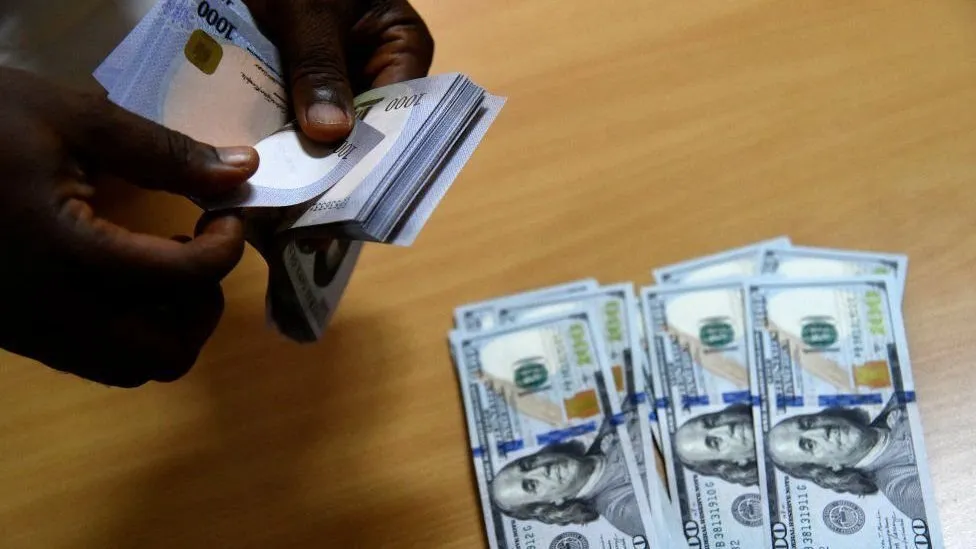On Saturday, January 27, 2024, the Naira experienced an upward shift against the dollar at the official market but maintained stability in the black market.
The domestic currency saw a commendable 1.02% appreciation, closing at N891.90 to a dollar at the close of business, as reported by the NAFEM, the official forex trading platform. This signifies a gain of N9.06 or a 1.02% increase compared to the N900.96 recorded the previous day.
During the trading session, the intraday high reached N1421/$1, while the intraday low was N700/$1, presenting a notable spread of N721/$1.
Data from the official NAFEM window indicates a forex turnover of $100.97 million at the end of the trading day, marking a 12.35% decrease compared to the preceding day.
In contrast, the Naira remained unchanged at the parallel forex market, quoting an exchange rate of N1410/$1, the same as the previous day. Peer-to-peer traders quoted around N1422.98/$1.
Notable Developments:
- Online Display of Black-Market Rates: EntrepreneurNG reported ongoing efforts to authorize the Association of Bureau De Change Operators of Nigeria (ABCON) to publicly display black-market rates online, overturning the ban on AbokiFX for publishing such rates. ABCON President Aminu Gwadabe stated that the association is proposing this move to regulators and upgrading its website for enhanced functionality.
- CBN’s Regulatory Shift: The proposed move aligns with a departure from measures implemented by the former central bank leadership to strictly regulate BDC operations and diminish the prominence of the unofficial market. In September 2021, the Central Bank of Nigeria took action against AbokiFX, alleging involvement in “illegal activities that undermine the economy.”
- AbokiFX and Naijabdcs.com: As AbokiFX ceased aggregating black-market rates, Naijabdcs.com, the online platform owned by ABCON, also discontinued publishing rates online. The central bank, led by Governor Godwin Emefiele, emphasized its stance against recognizing any FX rates in the unofficial market.
These recent developments showcase a dynamic landscape in Nigeria’s forex market, reflecting changes in regulatory approaches and efforts to enhance transparency in currency exchange operations.











